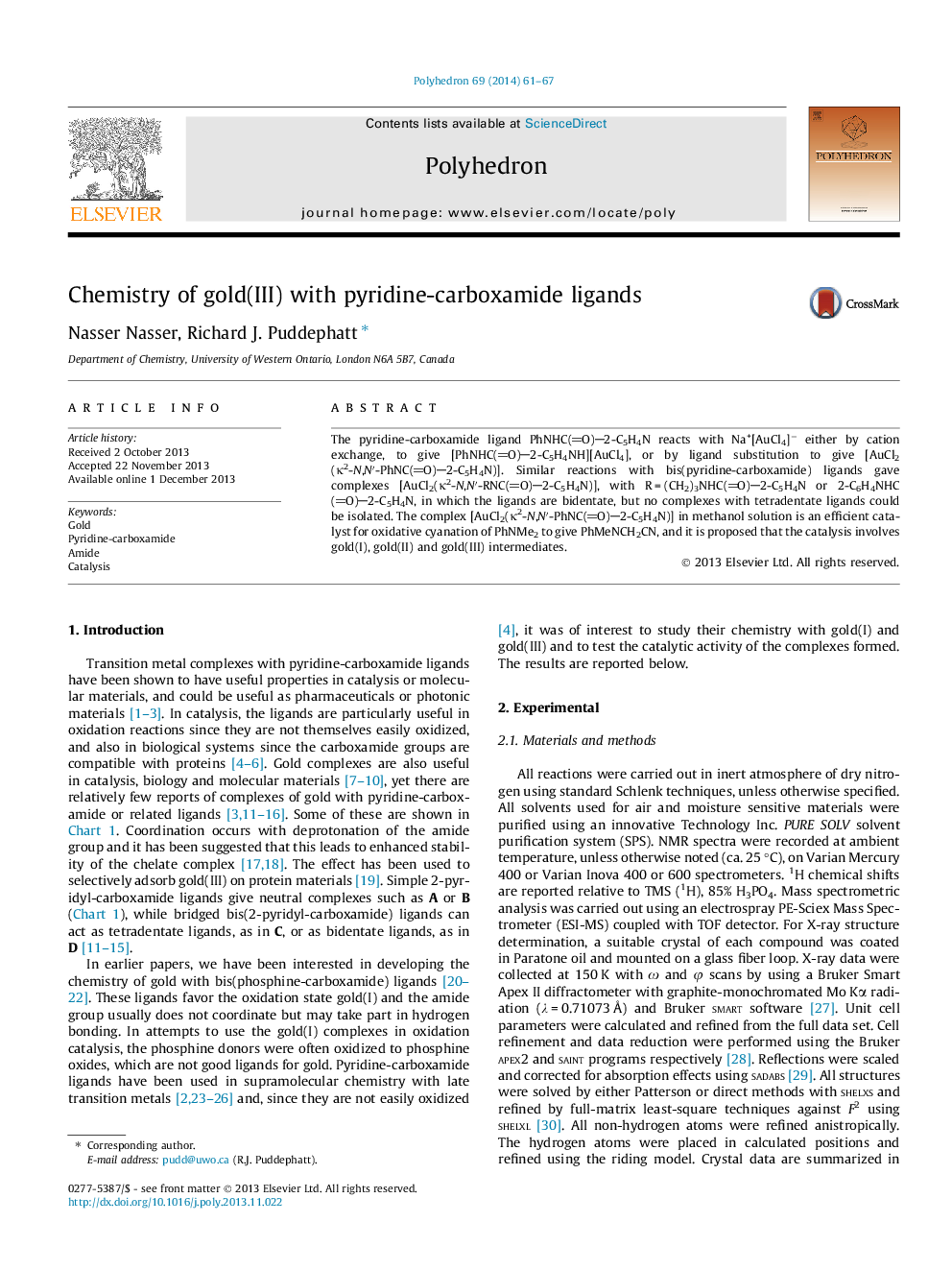| کد مقاله | کد نشریه | سال انتشار | مقاله انگلیسی | نسخه تمام متن |
|---|---|---|---|---|
| 1338061 | 1500270 | 2014 | 7 صفحه PDF | دانلود رایگان |

The pyridine-carboxamide ligand PhNHC(O)2-C5H4N reacts with Na+[AuCl4]− either by cation exchange, to give [PhNHC(O)2-C5H4NH][AuCl4], or by ligand substitution to give [AuCl2(κ2-N,N′-PhNC(O)2-C5H4N)]. Similar reactions with bis(pyridine-carboxamide) ligands gave complexes [AuCl2(κ2-N,N′-RNC(O)2-C5H4N)], with R = (CH2)3NHC(O)2-C5H4N or 2-C6H4NHC(O)2-C5H4N, in which the ligands are bidentate, but no complexes with tetradentate ligands could be isolated. The complex [AuCl2(κ2-N,N′-PhNC(O)2-C5H4N)] in methanol solution is an efficient catalyst for oxidative cyanation of PhNMe2 to give PhMeNCH2CN, and it is proposed that the catalysis involves gold(I), gold(II) and gold(III) intermediates.
A gold(III) complex with pyridine-carboxamide ligand is an active catalyst for oxidative cyanation of N,N-dimethylaniline.Figure optionsDownload as PowerPoint slide
Journal: Polyhedron - Volume 69, 17 February 2014, Pages 61–67